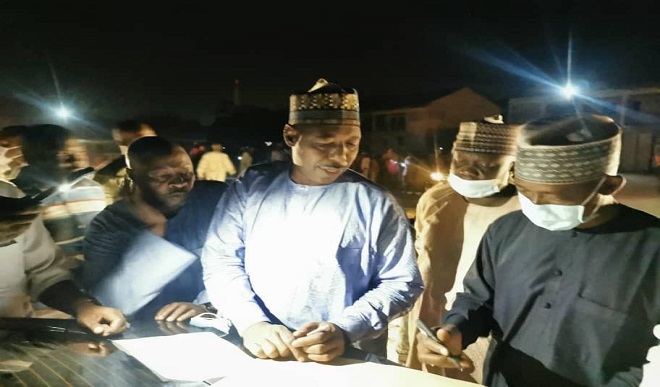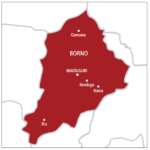Contrary to some state authorities, the Borno State Government is ruling out the possibility of firing civil servants.
Some states have reportedly agreed to sack thousands of underperforming employees as a result of dwindling revenues.
Governor Babagana Umara Zulum, in his Democracy Day speech, said, “We are undertaking other social protection interventions which cost money and yet we are amongst states that are the most consistent in paying monthly salaries and pensions.
“We cannot afford mass retrenchment of workers because we know the potential social implications of such actions. While many people may argue that workers are in fewer thousands, we recognize that these numbers have multiplying effects not only in terms of a bigger number of dependents, but also on the effect of salaries and pensions in our local economy. Thousands of traders, both small and medium, rely on sales from the funds pumped into the local economy, for their survival.
“We therefore cannot afford a mass sack to cope with wages, rather, we are even employing more and more persons. For instance, in January this year, we employed and trained 800 teachers, just as we employed more doctors, nurses, midwives and other support staff.
The governor said a total of 556 capital projects have been delivered since inception in the two years with 70% of the total already completed while 30% are at various completion levels.
The projects include 194 capital projects on education, which encompass rehabilitation, completion and fresh construction of mega-size government technical colleges and primary schools in different communities.
“We have undertaken 53 capital projects on reconstruction rehabilitation and resettlement which involve estates combining over 6,000 resettlement houses for IDPs and refugees in 15 towns.
“There are 28 capital projects on jobs creation, youths empowerment and humanitarian support which include an all-inclusive vocational training centre with 14 workshops for capacity development of 1,500 persons per annum.” he said.
Why I assume role of humanitarian officer
Zulum said the state is being faced with an acute humanitarian crisis particularly in northern and some parts of the central senatorial zones as a result of insurgency.
“As such, we made it a policy that as Governor, I assume the role of chief humanitarian officer for different reasons. On one hand, it was our duty to deliver help to our fellow citizens that were either internally displaced or taking refuge in neighbouring countries.
“On the other hand, there was the risk that insurgents could, after making IDPs socially and economically vulnerable, also explore that vulnerability by offering food and cash incentives to recruit fighters who could even serve as their spies in communities.
“From records, we have experienced instances when insurgents offered as low as between 5,000 and 10,000 Naira to recruit some spies and smugglers of weapons. We therefore needed to take steps ahead by making sure we regularly visit IDPs in all parts of Borno, including remote locations, to efficiently and sufficiently deliver food, cash support, and clothing. We needed to ensure that our good citizens had the support they needed, and they were not exposed to potential attractions for the incentives of insurgents.”

 Join Daily Trust WhatsApp Community For Quick Access To News and Happenings Around You.
Join Daily Trust WhatsApp Community For Quick Access To News and Happenings Around You.


